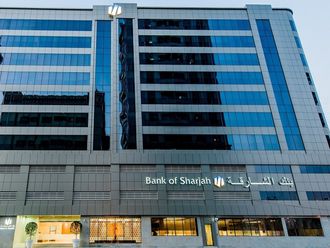Dublin/London: Portuguese banks are expected to borrow more from the European Central Bank (ECB) in coming months as a political crisis at home freezes them out of international markets again, rattling their chances of recovery.
The surge in borrowing costs due to a rift within the country’s ruling coalition has raised funding costs for Caixa Geral, Millennium BCP, Banco Espirito Santo (BES) and Banco BPI on capital markets.
Just two months ago, investors were urging Portugal’s banks to tap markets after a successful issue by the state but they stayed on the sidelines, believing that conditions would improve still further.
That now looks like wishful thinking.
“Spreads are widening and the cost of funding is going up, which means the shoe is now on the investor foot for the first time this year,” said Robert Montague, a senior financials analyst at ECM Asset Management.
Prime Minister Pedro Passos Coelho has said he is confident the government will survive the resignations of his finance and foreign ministers but the crisis has raised questions about Lisbon’s commitment to further spending cuts and its ability to exit a €78 billion (Dh367.5 billion) bailout next year.
Debt position
Even before the crisis, the International Monetary Fund (IMF) warned that Portugal’s debt position, expected to peak close to 124 per cent of annual economic output in 2014, was “very fragile”.
In May, Portuguese bank borrowing from the ECB fell by over two per cent, leaving them owing €48.74 billion to Frankfurt. The amount the banks owed the ECB peaked at €60.5 billion in June last year.
State-owned Caixa Geral, the country’s largest bank by assets, and BES, the second-largest, will likely shelve plans to tap debt markets in the next few months, bankers who help arrange such deals said.
“Two Portuguese banks had been looking for an opportunity to access the public market but with so much hysteria around the sovereign and Europe in general, it’s safe to imagine they have cancelled those plans,” said a senior syndicate banker.
“Given where Portuguese banks are trading now, the argument for focusing on ECB funding is even more powerful.”
Plans not on hold
A spokesman for Caixa Geral declined to comment. BES said it had not put any debt issuance plans on hold and still had the flexibility to tap markets if required. A spokesman for the bank also said it did not intend to borrow more from the ECB.
Caixa Geral and BES returned to international capital markets last year but Millennium BCP and Banco BPI have yet to join them. Millennium BCP told Reuters it had no plans to tap the markets this year, citing a comfortable liquidity position and no further refinancing needs in 2013.
No one from Banco BPI was available for comment.
Outstanding senior bonds issued by BES in January have widened by around 120 basis points to 592 basis points (bps). A similar bond issued by Caixa Geral in November has widened 94 bps in the same period.
Shares in the three listed banks have dropped on average by around a quarter from levels hit when the state staged its market comeback in May.
Unlike in Spain and Ireland, Portuguese banks are not at the heart of their country’s debt woes and are not at risk from a flood of impairments from a burst property bubble.
Loan books shrunk
Following the country’s bailout by the IMF and the European Union in 2011, they have shrunk loan books to reduce reliance on short-term funding markets and boosted defences against loan losses.
BCP, Banco BPI and state-owned Caixa Geral also borrowed around half of the €12 billion earmarked for the banks in the bailout to boost their capital ratios.
BPI has repaid around €300 million of the €1.3 billion in bonds it borrowed and its balance sheet is largely funded by deposits with a loan-to-deposit ratio of 104 per cent.
BCP, hit hard by loan impairments and exposure to Greece, drew €3 billion from the bailout. It also has the support of Angolan state oil company Sonangol, which earlier this year raised its stake in the bank close to 20 per cent.
Core capital levels at the four-largest banks meet the demands of European regulators but risk being eroded by worsening loan losses as the Portuguese economy struggles through a third straight year of recession.
With record high unemployment of 18 per cent, arrears are expected to peak next year at the earliest.
Official assistance
If Coelho fails to hold the government together or push further austerity measures, the banks’ capital defences could drop even further, raising the possibility they will need more official assistance.
A prolonged rise in bank borrowing costs on the wholesale debt markets, for example, could force the banks to compete more for deposits at home, hollowing out profit margins already wafer thin due to the weak return on their lending rates.
Banks could also cut back on lending even more to conserve capital, deepening the sovereign debt crisis.
The banks’ capital levels could also be hit if the drop in government bond prices deepens, forcing them to take a hit on their stock of such assets.
Portuguese banks have ramped up holdings of Portuguese government debt but purchased much of the paper last year when yields were well above current levels, meaning recent volatility is unlikely to have hurt them significantly.












